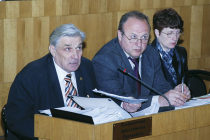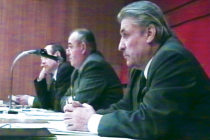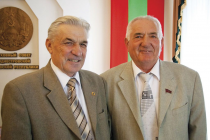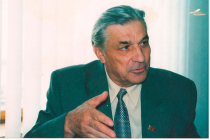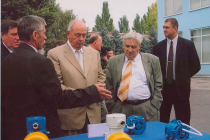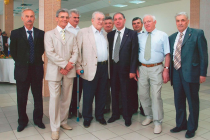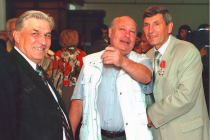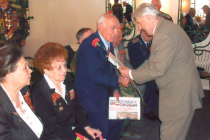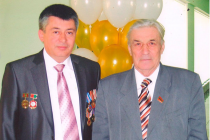 Русский
Русский English
English-







Vitaly Glebov, "We expressed the opinion of the people"
The period of the 1992 armed conflict was the most difficult for the republic for 28 years of existence. The young parliament did everything possible to resolve it. One of the documents adopted at that time by the Supreme Council was the decree “On urgent measures to ensure the safety of citizens of Pridnestrovian Moldavian Republic”. Pridnestrovian parliamentarians appealed to their Russian colleagues with a request to render assistance in countering the armed aggression of the Republic of Moldova. On June 16, 1992, the Moldovan parliament adopted a resolution “On the basic principles of peaceful settlement of an armed conflict, establishing peace and harmony in the eastern regions of the Republic of Moldova”, and three days later, on June 19, the army of the Republic of Moldova invaded Bendery. The deputy corps of Pridnestrovie appealed to the CIS countries with a request to provide the republic with military and humanitarian assistance.
The resolution of the armed conflict on the Dniester contributed to Russia. An agreement was signed in Moscow on the principles of the peaceful settlement of the armed conflict in the Pridnestrovian region of the Republic of Moldova. The peacekeeping mission on the banks of the Dniester began to fulfill the Russian, Pridnestrovian and Moldovan soldiers.
The legislative body of the second convocation adopted fundamental laws, including military issues, as well as the first codes. These include the Customs and the Criminal Procedure. In total, the Supreme Council adopted 368 laws in the period 1995-2000. These were mainly changes and additions to the current legislation. The fact is that the legal framework, which was originally based on the Soviet legal norms, and then on the CIS countries, needed to be brought in line with the requirements of the life of Pridnestrovians.
Under the parliamentarians of the II convocation, the republic became presidential. The government was replaced by the Cabinet of Ministers, which had advisory powers. The constitutional changes also affected the Supreme Council. Parliament has become representative (representing the interests of the people) and the legislative body of power.
The work of the legislators also consisted in the expansion of international relations. Pridnestrovian deputies signed a cooperation agreement with the People’s Assembly of Gagauzia.
Deputies took an active part in international conferences held in the CIS countries and abroad. Visiting Russia, Ukraine, Abkhazia, South Ossetia, Belarus, parliamentarians contributed to the establishment of political, economic, cultural cooperation.


